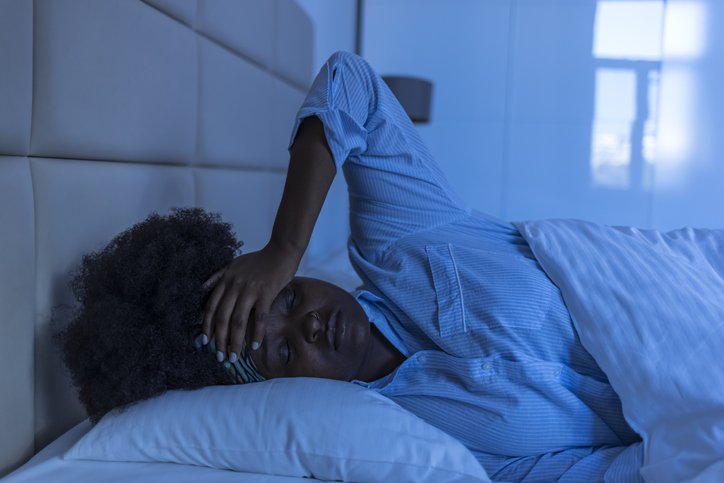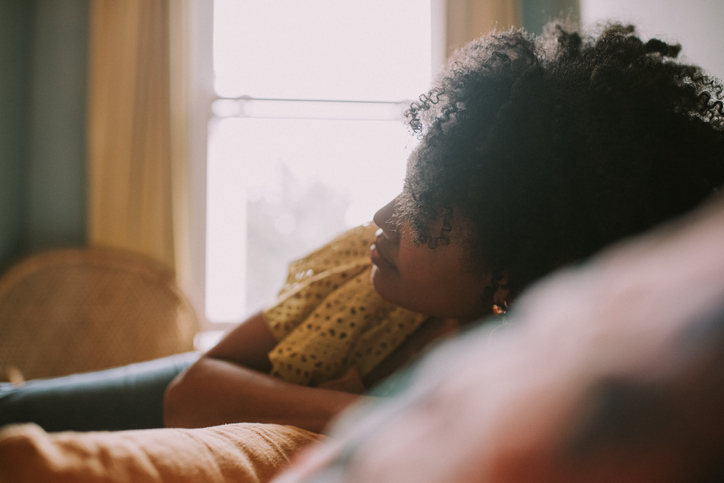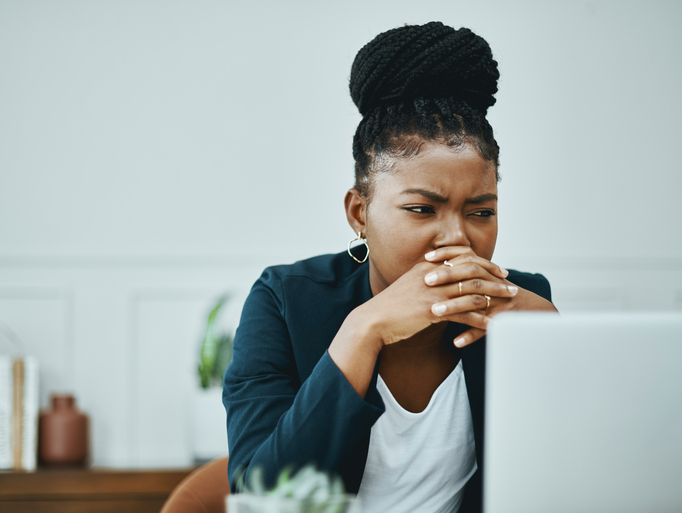Signs You've Been Neglecting Your Mental Health
7 Telltale Signs You’ve Been Neglecting Your Mental Health - Page 2
Share the post
Share this link via
Or copy link

Mental Health Awareness Month has been observed in the U.S. for over 70 years. But it’s no secret that the importance of mental health has not always been acknowledged as much as it is these days – and we still have a lot of progress to make. The industrious society we live in has historically conditioned us to believe if we’re physically capable, then we’re fine.
Mental health issues, however, can be just as debilitating as physical health issues – they just aren’t as visible. And that’s why Mental Health Awareness Month is so important.
This month matters to everyone but is particularly important for the Black community. Mental Health America reports that over seven million Black Americans suffer from mental health issues, and that 22.4 percent of those impacted have experienced serious mental illness in the past year. There are enough reasons to fill a book as to why the Black community suffers feelings of depression and anxiety at such a high rate, from historical trauma to current events to the Strong Black Woman ideology. However, the outcomes of neglecting mental health are serious. In the important spirit of Mental Health Awareness Month, here are signs you’ve been neglecting your mental health.
RELATED CONTENT: My Mother’s Mental Illness Wasn’t Mine To Inherit But There I Was Carrying The Grief
1. You Can’t Sleep

Love MadameNoire? Get more! Join the MadameNoire Newsletter
We care about your data. See our privacy policy.
The National Alliance on Mental Illness reports that there is a strong link between mental health issues – such as depression and bipolar disorder – and sleep issues. Not only can untreated mental health issues make it difficult to sleep, but lack of sleep can also worsen symptoms of mental health conditions, becoming a vicious cycle.
2. You Want To Be Alone

Some alone time is healthy, and can even be a part of maintaining your mental health. However, if you’ve lost interest in spending time with friends and actively seek to isolate yourself, that could be a sign that mental health issues are increasing. Worsening anxiety or depression can lead to self-isolation when there’s the worry that you’ll struggle to function in a social setting, or just can’t handle the pressure to “perform.”
3. You Can’t Experience Pleasure

If you struggle to find joy in people, activities and things that used to make you consistently happy, this could be a sign of increasing depression. An article called Dialogues Clinical Neuroscience published in the National Library of Medicine describes it as Anhedonia – “The reduced ability to experience pleasure.” It is often linked to depression and if you are suffering from it, it could be time to seek professional help.
4. You’re Irritable

Everyone gets irritable sometimes, but if you’ve been struggling with intense and long-lasting feelings of irritability, losing your temper easily and being short with friends, family and colleagues, this could be your mental health crying out for attention. When we don’t care for ourselves, we run out of the energy to care for others and that’s when even minor interactions can send someone over the edge.
5. Turning To Substances

If you’ve been turning to substances that alter your state of mind or help you feel numb more than you normally would, that could be a coping mechanism for neglected mental health issues. Turning to such substances in isolation in particular – as opposed to socially – can be a sign that you are avoiding certain feelings, and not giving your mental health the attention it deserves.
6. Difficulty Concentrating

We can’t expect laser focus from ourselves all of the time, but if you’ve seriously struggled to concentrate on work and other tasks lately, that could be a sign that your mental health needs some attention. Health Grades reports that difficulty concentrating is often a symptom of depression, trauma and stress disorders. Trouble focusing can have implications for your work, home life and more so it’s important that this symptom is not ignored.
7. You Have No Self-Care Routine

While this isn’t technically a symptom, if you don’t have a self-care routine, the chances that your mental health is being neglected are high. In fact, the National Institute of Mental Health states that having a self-care routine can play a pivotal role in maintaining mental health. Whether it’s daily meditation, taking one night to yourself every week, getting together with friends to vent or reading a good book, having a dedicated time slot in your calendar for your self-care routine is critical for mental health.
RELATED CONTENT: SUNDAY ‘NOIRE: 7 Mental Health Profiles To Follow On Instagram To Get Your Mind Right
Related Tags
black women mental health mental health awareness mental health awareness month Newsletter-

My Husband And I Attempted To Have A Creative Date Night At Home -Without A Babysitter - Here's How It Went
-

She Tried It: Ivy Park Drip 2 and 2.2 Black Pack
-

Vontélle Eyewear Founders Score History-Making Licensing Deal With Paramount
-

Our Health, Our Power: Debunking Myths And Taking Charge This Open Enrollment



